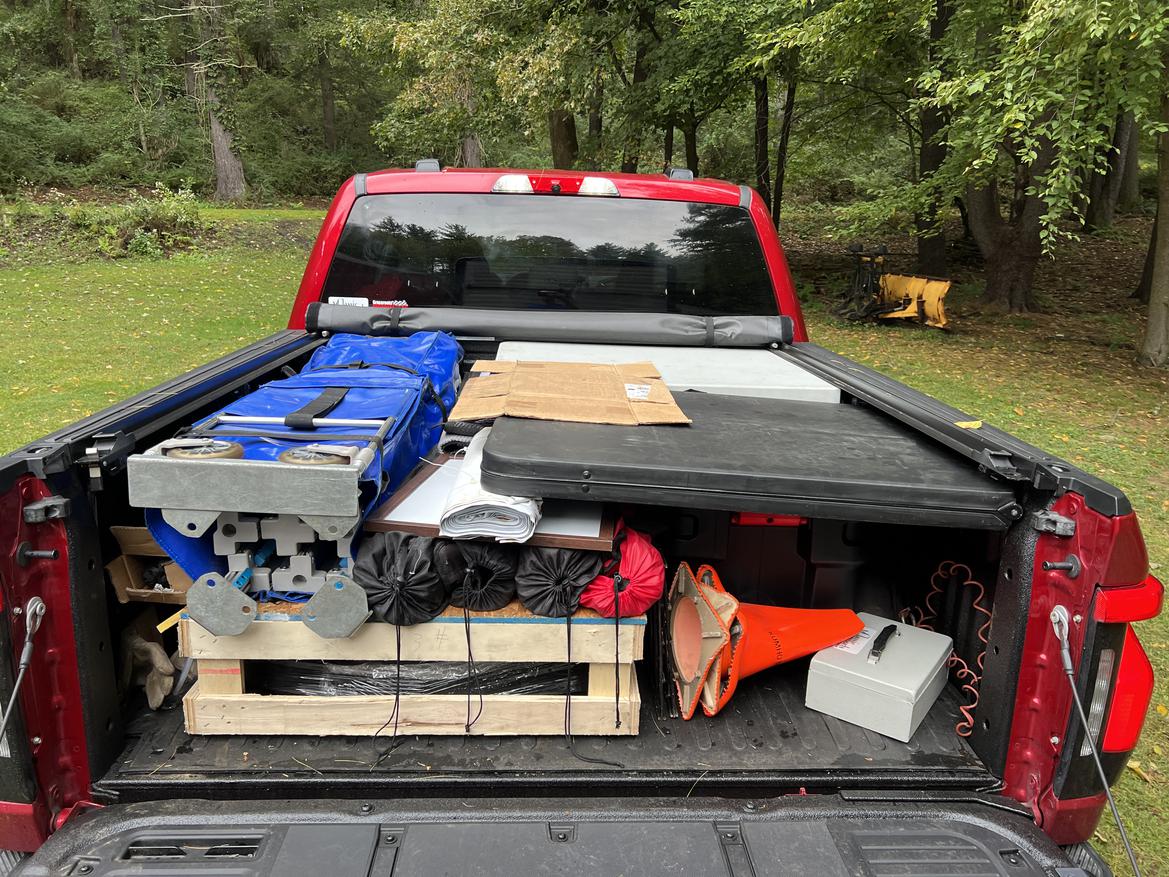So Nicole and I got home Monday night, after driving from Washington, D.C. home to Daytona Beach, Florida in one day. We didn't start with a full charge, as there was only a wall outlet to plug into overnight. Total distance was just under 800 miles, and the truck was fully loaded in the frunk, cab and bed, though not towing anything.

The drive took us just under 15 hours, but would have been 14.5 if it wasn't for absolutely terrible weather/traffic for the last 50 miles. We pretty much only stopped for charging, with a few non-charging rest areas thrown in when necessary. Google Maps says that it's 11 hours without any stops at all, but we've never managed to do it in less than 12-13 in gas cars once traffic/bathroom breaks/meals are factored in. So there's a slight time penalty with an electric truck. Total cost for this 800 mile drive was $139.98, which was all expensive public charging except for the $13.69 recharge once we arrived at home. That makes our cost per mile $0.174975
The only time we couldn't pull right up and plug in happened at one EA charger where half the stalls were broken and the other half were occupied, costing us about 20 minutes. And every Electrify America charger put out less power than advertised, usually by 20-75%. But overall, every charger worked and we arrived home when the truck estimated we would after planning its stops.
Yesterday's national average gas price for regular was $3.838, so this trip would have cost $255.87 in fuel in my old F-250. Or, to think about it another way, our cost was the same as road-tripping in a truck that gets 21.93 mpg. If we'd been able to start with a full charge of cheap house electricity, this equivalent fuel mileage would jump to 27.9 mpg. I guess that means I need to wire in a 240v outlet at my sister-in-law's house....
This was the final leg of a 3.5-week-long road trip that took us across the Northeast and added more than 4000 miles to the truck's odometer, plus another 600 miles added to a borrowed Lucid EV. And, overall, I absolutely love the truck. EV infrastructure is growing rapidly, and every single network except Electrify America seems to be building fast, reliable chargers, and doing it quickly. And after four fill-ups at Tesla Superchargers, I'm really excited for next year's opening of the Tesla network to the rest of us. We visited areas as urban as downtown D.C. and NYC, and as rural as upstate New York. The vast majority of our charging happened at public DC fast chargers, but we also took advantage of level 2 chargers and home outlets when available, mostly because I'm cheap and love free electricity.
The tech is not there yet for somebody who's driving 800 miles every day. But even for me, who roadtrips a lot, I believe the upside (11 months of incredibly cheap, incredibly convenient fuel at home) outweighs the downside (one month of public charging on a roadtrip). Plus, it's hard to overstate how much faster, quieter, and just plain better this drives than a new F-150 with the 3.5-liter EcoBoost or the Coyote.
And one more note: After parking the truck in my driveway with an empty tank at 10pm, I walked outside the next morning to run errands and it was full. I still don't understand why this feature isn't front and center in every single EV commercial.
Feel free to draw your own conclusions, but I figure documenting all this might be helpful as we go through a rather interesting time in car technology. And if nothing else, maybe we'll read this again in 10 years and say "driving an electric truck down I-95 really warranted a whole post and math and stuff? Why?"
































